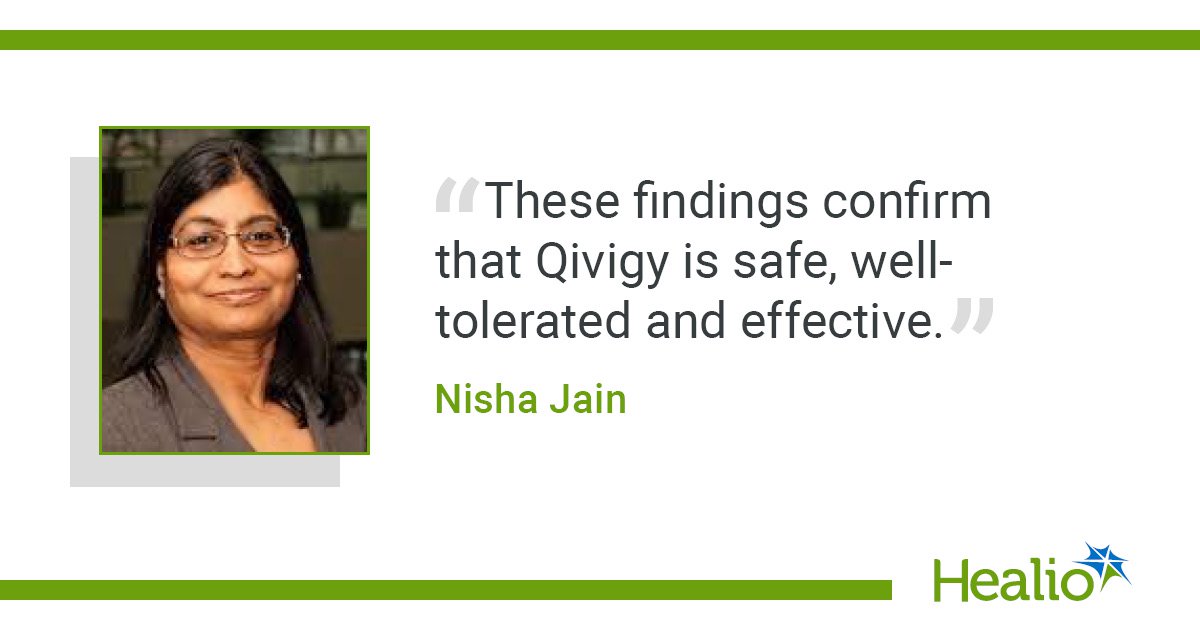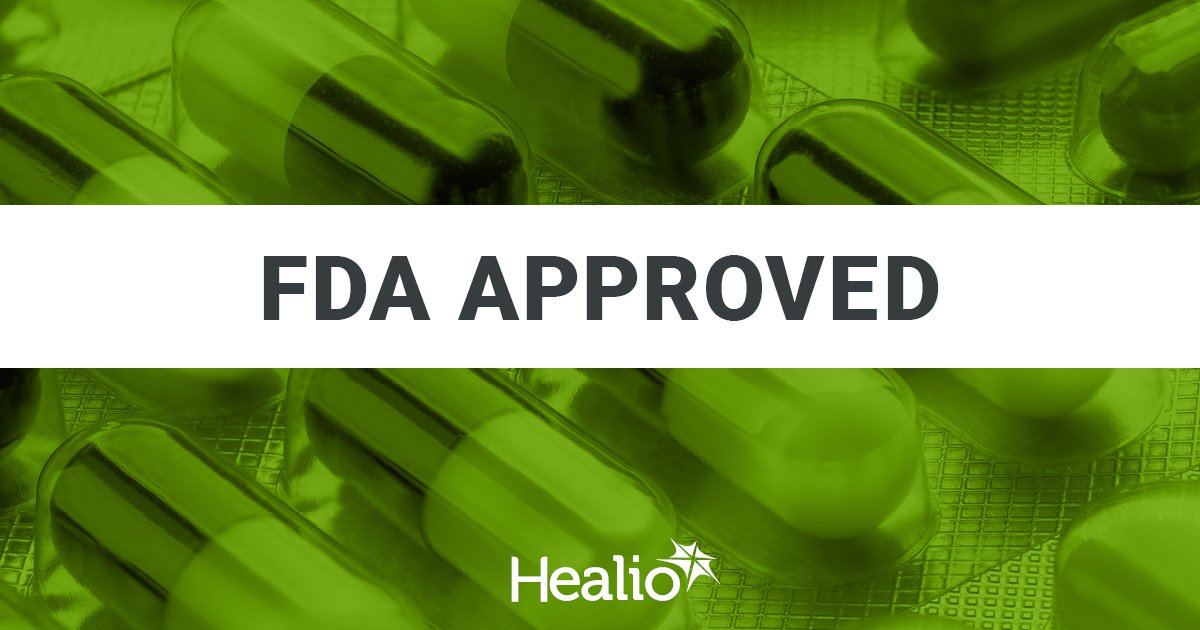October 10, 2025
3 min read
Key takeaways:
- There were no serious bacterial infections or hospitalizations due to infection over 12 months among adults treated with Qivigy.
- Patients experienced approximately 2.1 recurrent infections per year.
The FDA has approved Kedrion Biopharma’s Qivigy, a 10% IV immunoglobulin therapy, for treating adults who have primary humoral immunodeficiency, according to a company press release.
“Primary immunodeficiency [PI] is generally treated with immunoglobulin replacement therapy, either administered intravenously or subcutaneously, to provide the antibodies that patients are unable to produce sufficiently on their own,” Nisha Jain, vice president of global clinical development and strategy at Kedrion Biopharma, told Healio.

Immunoglobulin therapy helps reduce the frequency and severity of infections that patients experience, improving their quality of life, she continued, adding that Qivigy builds upon these established treatments.
“Like other [IV immunoglobulin (IVIG)] products, Qivigy provides pooled immunoglobulin G derived from donor plasma. Its primary function is to replace deficient antibodies in patients with PI, thereby helping to reduce infections by supplying functional immune defense,” Jain said.
“Although Qivigy has not been evaluated in direct comparative studies, its safety profile, side effects and immunologic activity are expected to be consistent with those of other IVIG products,” she continued.
However, Jain cautioned that there is no evidence suggesting that Qivigy has any novel immunomodulatory mechanism beyond current therapies.
The approval follows a 12-month study of 47 adults with PI (median age, 56 years; 64% women; 96% white) treated with Qivigy where no acute serious bacterial infections (SBIs) occurred, nor were there any hospitalizations due to infection.
“The annualized rate of other nonserious infections was approximately 2.1 per patient-year,” Jain said.
Further, the company said disruption in daily activities was minimal.
“The results from the 12-month study with Qivigy are noteworthy because they demonstrate strong protection against infections, which is the primary goal of immunoglobulin replacement therapy in PI patients,” Jain said.
Jain noted that bacterial pneumonia, bacteremia/sepsis, bacterial meningitis, osteomyelitis/septic arthritis, visceral abscesses and other SBIs are life-threatening and the key efficacy endpoint the FDA evaluates for PI therapies.
“Achieving zero SBIs across a year in all 47 patients indicates Qivigy met the regulatory expectations for efficacy,” she said. “This outcome underscores Qivigy’s effectiveness in preventing severe infections in PI patients.”
Also, she said, hospitalization is a direct measure of the severity and burden of disease.
“The absence of infection-driven hospital stays highlights Qivigy’s ability to prevent complications that typically strain both patients’ quality of life and health care resources,” Jain said. “Patients may spend less time in hospitals and more time on routine care and normal daily activities.”
Further, patients with untreated PI often experience recurrent infections at rates that are much higher than the approximate 2.1 per patient-year seen in this study, she said.
“The low infection frequency suggests Qivigy provides effective ongoing immune protection, while still allowing for a manageable level of minor nonserious infections,” she said.
In study-specific patient satisfaction questionnaire results, approximately 93% of the patients were satisfied with the treatment with Qivigy, whereas 68% were satisfied with their previous IVIG treatment.
“These findings confirm that Qivigy is safe, well tolerated and effective in reducing both severe and recurrent infections, while also enhancing patient satisfaction, thereby positioning it as a strong option within the current PI treatment landscape,” Jain said.
Headache, infusion-related reactions, fatigue, nausea and positive direct Coombs test results were among the most common adverse events related to treatment, the company added.
“Qivigy’s clinical profile indicates that it can become a reliable, safe and effective option for routine management of PI, allowing clinicians to focus on individualized care,” Jain said.
Kedrion plans on collecting post-marketing data on infection rates, hospitalizations and patient-reported outcomes as well as assessing differences in infusion schedules, tolerability and patient adherence. The company will assess Qivigy’s cost-effectiveness and its impact on health care resource utilization as well.
Next, Jain said Kedrion will focus its research on expanding its clinical evidence, optimizing the use of Qivigy and exploring new indications such as chronic inflammatory demyelinating polyneuropathy and chronic immune thrombocytopenia.
“Currently, evaluation of Qivigy in pediatric patients with primary immunodeficiency is ongoing,” Jain said.
Kedrion Biopharma expects Qivigy to be available in the United States in early 2026.
For more information:
Nisha Jain can be reached at allergy@healio.com.










